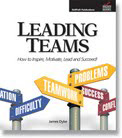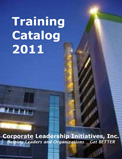DON’T Do What You DON’T Love!
In his thoughtful and insightful book, The One Thing You Need to Know…, author and consultant Marcus Buckingham discusses the importance of identifying your strengths, gifts, talents (I use these terms synonymously). He admits, “…there’s no question that identifying your strengths and orienting your career around them is sound advice.”
Find your personal and professional sweet-spot.

He mentions useful tools like the StrengthsFinder profile, the Myers-Briggs Type Indicator, and the Kolbe profile. He also suggests, “first-hand reflection on past successes can serve as an excellent starting point. The more you investigate your past successes, the more you’ll recognize that certain recurring patterns of behavior or perception always seem to crop up.”
One of the important connections here is the research-revealed principle that when we are doing work that utilizes a talent, we enjoy it! In other words, centering our work on our strengths supports the adage, “do what you love.”
Ultimately, however, Buckingham presents his own formula for sustained individual success:
Discover what you don’t like doing and stop doing it.

He cautions, “as you grow, as you experience success, you must keep your senses alert to those aspects of your role that bore you, or frustrate you, or drain you. Whenever you become aware of some aspect you dislike, do not try to work through it. Do not chalk it up to the realities of life. Do not put up with it. Instead, cut it out of your life as fast as you can. Eradicate it.”
So what do you do when you are faced with parts of your job that are not aligned with your talents? Buckingham offers four tactics:
1. Quit the role. Find another job in the organization (or in another organization) that fits you better.
2. Tweak the role. Change the job description to better fit you and your strengths. (We all tend to do this with our jobs over time… but most of us do it intuitively rather than mindfully, intentionally, or strategically.)
3. Seek out the right partners. Find colleagues or subordinates you can team up with, who can do the things you dislike so you are free to focus your efforts where you really excel. Effective bosses have been using this principle long before “workplace talents” were identified and described. I call it “staffing by complementation” or “staffing to your weaknesses” by hiring team members who excel in your areas of weakness. As an entrepreneur, I do this mostly by outsourcing (e.g. IT, accounting, web design, taxes!).
4. Find an aspect of the role that brings you strength. Perform a little mental trick and find a way to do what you dislike in the interest of a greater, larger good. If you don’t like leading meetings, tell yourself that the meeting you are forced to lead is a door into other opportunities that you value and enjoy (e.g. thinking and working creatively).
Do your weaknesses matter???
I worked for one executive who used to say, “I want my staff to work in the areas of their strengths until their weaknesses become irrelevant.” But… is that really possible? As an experienced executive coach, I can tell you from first-hand experience: many weaknesses will NEVER become irrelevant – they can stop your career like a brick wall! In the next post, I will help you understand which weaknesses you can overlook, and which you MUST address. Stay tuned!
Until next time… Yours for better leaders and better organizations,
Dr. Jim Dyke – “The Boss Doctor” ™ helping you to BE a better boss and to HAVE a better boss!


